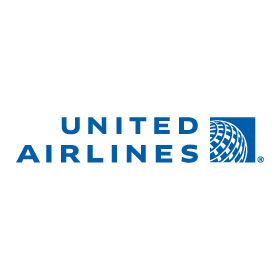
Last week I watched TV reports of a man getting dragged off a plane. At first glance it might appear that this man might have been removed for unruly behaviour. Given his age, it seemed a stretch. This type of forcible removal is usually withheld for young, drunken louts with a predilection for disruption and “tomfoolery” not guys who seem like they’ve reached well into their senior years.
The whole debarcle stemmed from the fact that there weren’t enough seats on the plane to accomodate the number of passengers required. A pretty simple application of the pigeon-hole principle. It’s pretty common knowledge that the airline industry will overbook flights to maximise the load capacity of the plane. The rationale, is that a very small percentage of people in all their fickleness will not always show up to a flight. Naturally if you book a ticket and have paid money there’s a very strong consequence that you’ll turn up. But there’s always a few people that don’t and the Airlines know this and capitalise on the statistical likelihood.
The clinger with this is that the airline has already made their money from the allocation of the seat (or fees for alteration/cancellation). By not showing up, it does not change keep the airline out of pocket. Seeing an opportunity, airlines will double-book and fill the seat with another paying passenger on reserve, effectively making double on one seat.
In the instance of United Airlines Flight 3411, David Dao had secured his seat and boarded the plane. UA needed to get 2 Â flight attendants back to Louisville Kentucky but had no further room to transport them. Hence the debacle that followed. The doctor, a former refugee from Vietnam, was forcibly removed by airport security. In the process of dragging the elderly man off the plane, he suffered a fractured nose, 2 broken teeth and will require nasal reconstruction surgery. He described it as ever much worse than anything he’d experienced in wartime Vietnam. Passengers were filming this event and it made headline news all around the world.
What’s to be said about this, and what could have been done differently?
For starters, overbooking a plane is morally questionable. If I, as a passenger, pay for a ticket there is a reasonable expectation that I will be afforded the service that I paid for. There is an implicit understanding that I will use the service paid for. If I pay for a ticket to a rock concert I damnwell expect to be able to see the concert!
Secondly, if this practice of overbooking has to continue then let the incentive do the talking. Use an auction system and wait for the offer to become so irresistible that _just one_ person will take the offer voluntarily. Start small and increment accordingly. Let market forces do the work. There will come an equilibrium point where the offer starts to become more enticing than the convenience of remaining on the plane.
Airlines cannot have their cake and eat it too. If you want to overbook the flight to maximise profit at the expense of paying customers then conversely if the adverse situation arises (which it did), then you should be prepared to shell out over and above the expense of a ticket to alleviate and compensate the inconvenience for the customer.
The airline CEO Oscar Munoz seemed mostly unperturbed by the incident. Shortly after the headline made news an email was leaked where he congratulated staff on their professionalism. To add fuel to the fire, he also bad-mouthed the customer made accusations towards him and labelled him as “disruptive and belligerent”. It’s almost guaranteed that this will become a case study in future on how not to handle PR events.
Two days later, seeing how nuclear this event had become, an curt apology was made on Facebook. The words “I’m sorry, we’ll fix this”. The usual PR weasel words and flowery rhetoric BS followed only after an intense backlash.
And the aftermath of this:
1. Bad publicity. The airline has been splashed all over the world. On TV news, Facebook feeds etc. Thanks to the digital age and ubiquity of smartphones we can see the altercation in all its bloody glory.
2. Loss of profit. The airline’s stock tanked after this incident. More than 1 billion was wiped off its market cap. This goes far beyond the perceived savings that would have been made by forcibly removing a paying customer
3. Don’t be a dick. Your customers are your lifeblood. Treat them with dignity and respect and do everything in your power to provide a service to customer’s have paid for it. It’s not that difficult.
4. Legal action. Causes further embarrassment and cost to the airline and will further exacerbate points 1 and 2.
5. Future revenue loss. The internet has a way of making things “sticky”. Memes and discussion will ensure that this episode is not quickly forgotten. People don’t like seeing other people being physically assaulted by airline staff. Whether self-induced (as in this case) or not (Malaysian airlines twin disasters), people will vote with their wallets where a viable alternative exists.